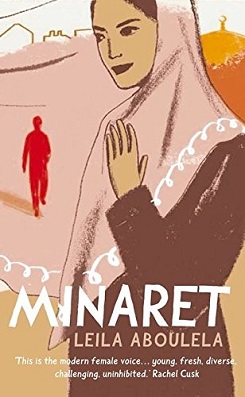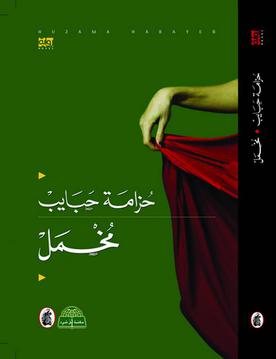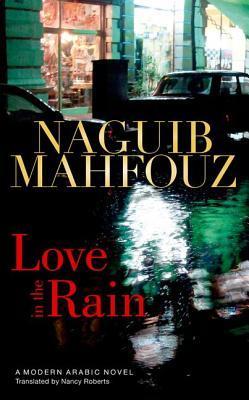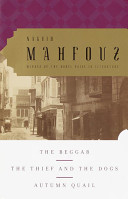
Naguib Mahfouz Abdelaziz Ibrahim Ahmed Al-Basha was an Egyptian writer who won the 1988 Nobel Prize in Literature. In awarding the prize, the Swedish Academy described him as a writer “who, through works rich in nuance – now clear-sightedly realistic, now evocatively ambiguous – has formed an Arabian narrative art that applies to all mankind”. Mahfouz is regarded as one of the first contemporary writers in Arabic literature, along with Taha Hussein, to explore themes of existentialism. He is the only Egyptian to win the Nobel Prize in Literature. He published 35 novels, over 350 short stories, 26 screenplays, hundreds of op-ed columns for Egyptian newspapers, and seven plays over a 70-year career, from the 1930s until 2004. All of his novels take place in Egypt, and always mention the lane which equals the world. His most famous works include The Cairo Trilogy and Children of Gebelawi. Many of Mahfouz's works have been made into Egyptian and foreign films; no Arab writer exceeds Mahfouz in number of works that have been adapted for cinema and television. While Mahfouz's literature is classified as realist literature, existential themes appear in it.
The Cairo Trilogy is a trilogy of novels written by the Egyptian novelist and Nobel Prize winner Naguib Mahfouz, and one of the prime works of his literary career.

The Journey of Ibn Fattouma is an intermittently provocative fable written and published by Nobel Prize-winning author Naguib Mahfouz in 1983. It was translated from Arabic into English in 1992 by Denys Johnson-Davies and published by Doubleday.

Children of Gebelawi is a novel by the Egyptian writer and Nobel laureate Naguib Mahfouz. Its Egyptian dialectal transliteration is Awlad Haretna. An alternative English title is Children of the Alley.

Saladin the Victorious, also known as Saladin and the Great Crusades, is a 1963 Egyptian epic film directed by Youssef Chahine. It is co-written by Chahine, Yusuf Sibai and others, based on a novel by Naguib Mahfouz. The film features an ensemble cast. It stars Ahmed Mazhar, Salah Zulfikar, Nadia Lutfi, Omar El-Hariri, Mahmoud El-Meliguy, Leila Fawzi, Hamdi Gheiss, Ahmed Luxor, Hussein Riad, Laila Taher and Zaki Toleimat.

Abdal-Hamid Kishk was an Egyptian preacher, scholar of Islam, activist, and author. He was a graduate of Al-Azhar University in Cairo and was known for his humour, popular sermons, religious books and for his outspoken stance against injustice and oppression in the world.

The Beginning and the End is a 1960 Egyptian film directed by Salah Abouseif and based on the 1950 novel by the same name. It was the first film adapted from a novel written by Naguib Mahfouz. The Beginning and the End is the 7th in the top 10 films of the list of the Top 100 Egyptian films of all time.

Midaq Alley is a 1947 novel by Egyptian author Naguib Mahfouz, first published in English in 1966. The story is about Midaq Alley in Khan el-Khalili, a teeming back street in Cairo which is presented as a microcosm of the world.

The Beginning and the End is a novel by Egyptian writer Naguib Mahfouz, first published in 1949. The novel is set in the suburbs of Cairo in the late 1930s and deals with the trials and tribulations of a middle-class family who are struggling to keep out of poverty after the death of the father, the sole breadwinner. The novel is marked by very bold characterization for the time period and setting, and the story moves at a prolific pace as it tries to look at the world from each character's viewpoint.

The American University in Cairo Press is the leading English-language publisher in the Middle East.

Brooklyn Heights is the fourth novel by Egyptian writer Miral al-Tahawy. It was shortlisted for the Arabic Booker Prize for 2011 and won the 2010 Naguib Mahfouz Medal for Literature The novel, released in Arabic in 2010, was published in an English translation by Sameh Salim from the American University in Cairo Press the following year. Al-Tahawy holds a doctorate in Arabic literature from Cairo University and teaches at Arizona State University in Phoenix, Arizona.

Minaret is the second novel from the Sudanese author Leila Aboulela. Published in 2005, Minaret follows the journey of Najwa, a young woman forced to flee her home in Sudan in the face of the Second Sudanese Civil War. After her father's execution, she and her family are forced to flee to London and leave behind the life of affluence and comfort that she once knew. As she loses everything, she manages to find herself again through her faith.

Velvet is an Arabic language novel by Palestinian author Huzama Habayeb published in 2016. The book won the Naguib Mahfouz Medal for Literature in 2017. The novel depicts several Palestinian women experiencing tragic love stories under the compelling circumstances and within the ultraconservative community of Baqa'a refugee camp in Jordan.

Ruswai previously titled Zard Bahar is a 2019 Pakistani crime drama television series, that originally aired on ARY Digital in 2019-20. It is produced by Humayun Saeed and Shahzad Nasib under the banner of Six Sigma Plus. Sana Javed and Mikaal Zulfiqar played the lead roles. The serial revolves around rape survivor Samira and is based on the concept of Watta Satta. It is digitally available to stream on YouTube and in some countries on VIU App.

Zaabalawi is a symbolic story written by the Egyptian writer Naguib Mahfouz, winner of the Nobel Prize in Literature in 1988. It was first published in 1961 and reprinted within the collection of God's World. in 1972. Issues affecting restrictions and customs and sometimes rebellion against controls, which causes writers and philosophers in general many troubles. Some of Mahfouz's writing were influenced by philosophical literature which allowed him to raise some questions about the social and traditional restrictions and sometimes it rebel on the regulations, and that causes many troubles to the authors and to the philosophers generally. Mahfouz was speaking about his late schooling and he said, speaking of his late schooling.. "The relationship between me and Sheikh Ajaj was very friendly. He was a fan of my writing style, He also considered my construction topics as role models for students." In this period, my view of religion was characterized by some emancipation, but I emphasize that it was a liberal view and not an infidel. For example, I was writing a topic about the great people of history and I put Muhammad among them. Sheikh Ajaj considered this offensive to the prophet." Zaabalawi contains a Sufi theme, Mahfouz mentions that he is interested in the Sufi ideas by saying: "When I set to myself a program of self-education at the beginning of my life, a large part of this program was about studying major religions and the history of civilization, and I was interested in the Sufi and Islamic writings. Although I do not believe in the ideas and beliefs of Sufism as the Sufis believe, I found in reading their books and contemplated great mental and psychological comfort. In Sufism I was attracted by the idea of spiritual supremacy.”

Autumn Quail is a novel by the Egyptian writer Naguib Mahfouz. It is considered to be one of his more philosophical works. The novel looks at foreignness, the past, and the everchanging reality through the character Isa Al-Dabbagh. This novel was originally published in 1962 and was later adapted into a foreign language film in 1967. The film was directed by Hussam Addein Mustafa. The novel was then translated into English in 1985 under the title "Autumn Quail."

Love in the Rain is one of Naguib Mahfouz's most popular novels. It received a lot of acclaim from critics, and readers. The novel was adapted into a film in 1975, and it was directed by Hussein Kamal, starring Mervat Amin, Ahmad Ramzi, Adel Adham, Imad Hamdi, Magda Al-Khatib, Hayat Qindil, and other notable actors.
Sugar Street, first published in 1957, is the third novel in the Cairo Trilogy by Egyptian novelist Naguib Mahfouz. In this third novel, the main character Kamal, the youngest son of Ahmad 'Abd al-Jawad who is a young child in the first and a student in the second, is a teacher.

The Coffeehouse (1988) is a novel by Nobel-winning Egyptian writer Naguib Mahfouz; it was his last novel, although it was not his final work. The novel narrates the story of a group of friends in Al-Abasiya, who during their childhood united after coming from different directions, west and the east, in a playground, becoming life-long friends who took the coffeehouse as their main spot to talk about life.

The 1988 Nobel Prize in Literature was awarded to the Egyptian writer Naguib Mahfouz (1911–2006) "who, through works rich in nuance – now clear-sightedly realistic, now evocatively ambiguous – has formed an Arabian narrative art that applies to all mankind." He is the first and only Arabic–Egyptian recipient of the prize.
















